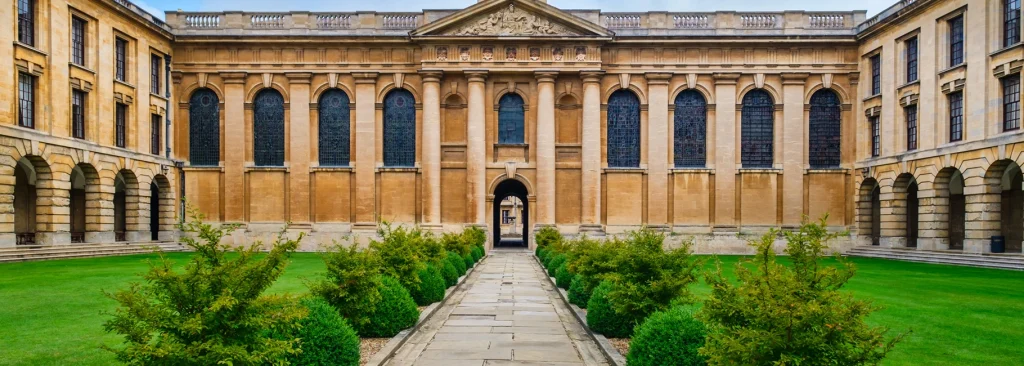The mystique surrounding Ivy League institutions often leads to the belief that only students with top accolades stand a chance of admission. And while achieving a national award or two can certainly impress an admissions committee, it is not a requirement. Understanding the Ivy League requirements for admission can help you focus on building both a strong academic and extracurricular profile.
Introduction to Ivy League Admissions
The Ivy Leagues are among the oldest institutions of higher learning in the U.S., with centuries of academic excellence and influential alumni. What makes Ivy League schools unique in particular is their prestige — these are some of the most highly esteemed institutions in the world, and students from around the globe dream of being admitted each year. This makes Ivy League admissions exceptionally competitive, with admission rates consistently among the lowest in the U.S.
Given that many applicants have stellar academic records, the competition extends far beyond grades and test scores. Demonstrated leadership, significant extracurricular involvement, and compelling personal narratives become crucial differentiators. This holistic approach is fundamental to Ivy League admissions because it helps them understand the whole person and how the student might contribute to the campus community.
Learn more about admissions at each Ivy League school: Harvard University, Dartmouth College, Yale University, Princeton University, Columbia University, University of Pennsylvania, and Cornell University.
The Role of Academic Achievements
Your high school GPA, course rigor, class rank (if available) and standardized test scores are extremely important for Ivy League admissions. In fact, your academic achievements are the most critical factor of a competitive application. Once you’ve established a strong academic foundation, awards and honors become significant differentiators because they provide tangible evidence of your excellence and passion.
Meaningful Awards and Honors
Admissions committees prioritize these types of awards:
- National or international awards (e.g., Regeneron Science Talent Search, significant literary awards) carry the most weight because they demonstrate rare talent and achievement on a large scale.
- Awards that stand out from common high school honors (like simply being in the National Honor Society, which is widely achieved) are more impactful.
- Awards that align with your stated academic interests or “hook” (a deep, focused passion) are particularly compelling. For example, if you want to major in engineering, a national robotics award is highly relevant.
- Awards that highlight leadership, initiative, or a significant contribution are highly valued.
Awards can also encompass significant academic achievements that might not be formal awards in the traditional sense, such as publication in a peer-reviewed journal, successfully completing independent research projects, presenting at academic conferences, or winning a highly selective summer program or research opportunity.
Extracurricular Activities and Leadership
Other differentiators in the Ivy League admissions process include extracurricular activities and leadership experience. Your commitments both inside and outside of school demonstrate your character, passions, future impact, and potential contributions to the campus community. Ivy League institutions aim to cultivate future leaders. That said, it’s important to understand that leadership isn’t just about holding a formal title; it’s about demonstrating:
- Influence and impact: How have you positively affected your peers, school, or community?
- Problem-solving: Did you identify a need and work to address it?
- Initiative: Did you start a new club, project, or initiative?
- Responsibility: Did you reliably manage tasks, organize events, or mentor others?
- Interpersonal skills: Can you motivate, collaborate, and communicate effectively with diverse groups?
It’s less about the type of activity and more about the depth, impact, and sustained commitment. Admissions committees in general — not just in the Ivy Leagues — look for deep engagement in your areas of interest, impactful leadership roles, meaningful community service, strong participation in athletics (at a high level for recruited athletes), and/or work experience.
The Role of Achievements and Awards for Extracurriculars
Achievements and awards in extracurriculars provide external validation and quantifiable evidence of your excellence and impact. In a pool of thousands of academically strong students, awards help you stand out by demonstrating that you are not just involved, but you are truly outstanding in a particular area.
Extracurricular awards often highlight your hook, making you a distinctive candidate. For example, a national debate championship or a first-place finish at a state science fair clearly signals a profound interest and aptitude. Awards often come with measurable success (e.g., “placed third at national robotics competition,” “won state art competition”). This quantifies your achievements — something admissions officers appreciate.
National Awards and Ivy League Admissions
A question students and parents often ask is, “Do you need national awards for Ivy League schools?” While a national award isn’t strictly necessary for every admitted Ivy League student, having significant achievements and awards greatly enhances your competitiveness by providing objective, external validation that you have achieved excellence at a very high level, often against significant competition.
The impact of an award is always viewed in context. An award that is truly rare and highly competitive carries far more weight than a more common or less selective honor. However, awards are just one piece of the puzzle, and their weight varies depending on how strong the other components are in your application.
- Academic record: Without a stellar academic foundation, national awards alone are unlikely to secure admission. Your academic record demonstrates your ability to handle the rigor of an Ivy League institution.
- Extracurricular activities and leadership: If an award reflects years of dedication and impact in an activity, it reinforces the strength of that extracurricular profile. However, impactful, sustained, and leadership-oriented extracurriculars are vital even without national awards.
- Essays: A national award might be a great topic for a college application essay, but the essay itself is what truly brings the applicant’s story to life and showcases their unique perspective. A poorly written essay, even with national awards, can weaken an application.
- Letters of recommendation: These provide external validation of your character, work ethic, and contributions. Recommendation letters can highlight qualities that might not be evident in other parts of the application and reinforce the significance of achievements, including awards.
- Personal qualities: Ivy Leagues also assess personal qualities like maturity, curiosity, creativity, and resilience. They consider the opportunities and challenges a student has faced. An award, while impressive, needs to align with a compelling personal narrative.
Think of national awards as “power-ups” in a video game. They significantly boost your score and make you stand out, but you still need to have a strong base game (academics) and demonstrate overall skill (impactful extracurriculars, compelling essays).
Community Service and Social Impact
Is community service important for Ivy League admissions? Yes, community service is important, but its significance lies in the quality, depth, and impact of your involvement, rather than simply accumulating hours or checking a box. Ivy League schools seek students who are not only intellectually capable but also socially conscious, empathetic, and likely to contribute positively to campus and the wider world.
Examples of impactful community service include:
- Tutoring/mentoring: Providing consistent academic support to younger or underprivileged students.
- Environmental action: Organizing large-scale clean-ups, leading conservation efforts, or initiating recycling or composting programs.
- Advocacy/activism: Starting or leading campaigns for social justice, environmental protection, or local policy changes.
- Fundraising (with leadership): Organizing significant fundraising events for a meaningful cause, demonstrating initiative and organizational skills.
- Direct service with responsibility: Taking on significant responsibilities at a shelter, soup kitchen, animal rescue, or nursing home (e.g., managing inventory, training new volunteers).
- Skill-based volunteering: Using specific talents (e.g., coding to build a website for a non-profit, graphic design for promotional materials, teaching music lessons to underserved children).
The Role of Community Service Awards in Admission
Awards can help your service stand out by indicating a level of commitment and achievement that goes beyond typical volunteering. However, their impact varies. Awards that are not highly selective don’t carry significant weight on their own. More selective, competitive awards (e.g., specific foundation awards for youth leadership in service, highly competitive scholarships tied to community impact) will carry more weight because they are harder to achieve and indicate a higher level of distinction.
It’s important to remember that the underlying depth, impact, and sustained leadership in your community service are far more important than the award itself. An award is merely a recognition of those qualities.
Optimize Your Ivy League Applications with IvyWise
In the hyper-competitive college admissions process — especially at the Ivy League level — it’s critical to submit an application that tells a cohesive narrative about your academic and extracurricular interests, your personal qualities, and the impact you hope to make on campus. Whether or not you have national awards and recognitions, it’s absolutely crucial for your application to tell a compelling story that helps you stand out from other applicants.
At IvyWise, our college admissions counselors have more than 440 years combined experience in undergraduate admissions at top schools — including the Ivy Leagues. They know how to help students optimize the college application process to have a stronger chance of being admitted. In fact, IvyWise students are five times more likely to get into top schools than the general applicant.
Get Started




